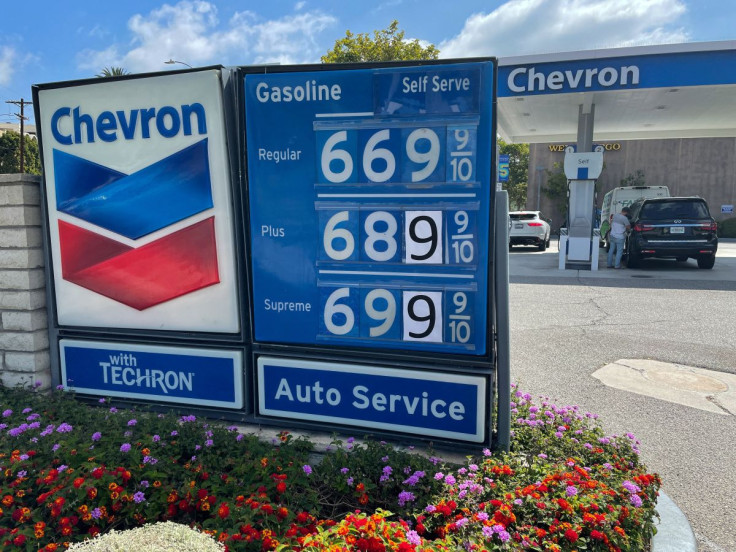Chevron In Discord With State Regulators Over Disclosure Of Their Oil Price Data
Chevron appears to be in hot waters after California regulators say it didn't fully disclose how much money it made from selling gasoline in the state in January.
Regulators threatened Chevron with penalties, which could include a fine of up to $2,000 per day, for not following a new law which directed oil companies to disclose their January pricing data by March 2. In a response Tuesday, Chevron said it began disclosing the required data but was waiting for further clarification from the California Energy Commission before disclosing the remaining data, according to AP News.
The new law came into effect as decision-makers and state regulators began investigating a spike in California's gas prices.
The state of California has been consistently witnessing surge in gas prices due to higher taxes and fees. In addition to this, environmental laws in the state also mandate a special blend of fuel that is costlier to produce but helps reduce pollution.
Drivers in California paid an average of $4.90 for a gallon of gas Tuesday. This was $1.44 higher than the national average, as per CBS News.
State regulators began investigating gas prices last summer when the average price of a gallon of gasoline in California was more than $2.60 higher than the national average. The difference was too large to be blamed on taxes on fees, pushing regulators to turn their attention to the big oil companies in the state.
California's big five oil companies — Chevron, Marathon, PBF Energy, Phillips 66 and Valero — were expected to report their monthly "gross refining margin" as part of the investigation. Gross refining margin is the difference between the price at which refineries bought the crude oil and the price at which companies sold it as gasoline.
California-based Chevron is currently enjoying the largest share of the market among the aforementioned companies.
The big five oil companies, except Chevron, met the March 2 deadline and submited their January pricing data to the California Energy Commission, which is collecting the data.
However, the commission said Chevron, which accounts for roughly 30% of all gasoline sold in California, submitted only a "small fraction of the data required." It further claimed the company objected to reporting anything further.
Chevron spokesperson Ross Allen maintained they were not out of compliance with the law and that they had asked the commission for further arification on the required information.
Allen added the company filed a "revised response" late Tuesday afternoon and provided the data mandated by law.
"Since the statutory guidance was unclear, rather than speculate and supply inconsistent and potentially inaccurate data, Chevron exercised its statutory right to object and seek clarification in a timely manner," Allen said.
Chevron attorney Melissa Sladden, in a letter dated March 2, had asked the commission to postpone the implementation of the law for more clarification on the data needed.
The data required by the law "paints a false picture of actual refinery profit margins by significantly undercounting refinery costs," Sladden wrote in the letter.
"Getting this term right is doubly important as it is currently being contemplated by legislators as a measure on which to impose a tax on refiners," Sladden added. "Legislating or regulating based on inaccurate data could result in unintended consequences, such as decreased investment in gasoline production and higher long-term prices at the pump."
Chevron also expressed disappointment after its letter to the Energy Commission objecting to disclosing the data was made public. The spokesperson stated the information request "falls short of the transparency and trust that should inform good policymaking."

© Copyright IBTimes 2025. All rights reserved.






















